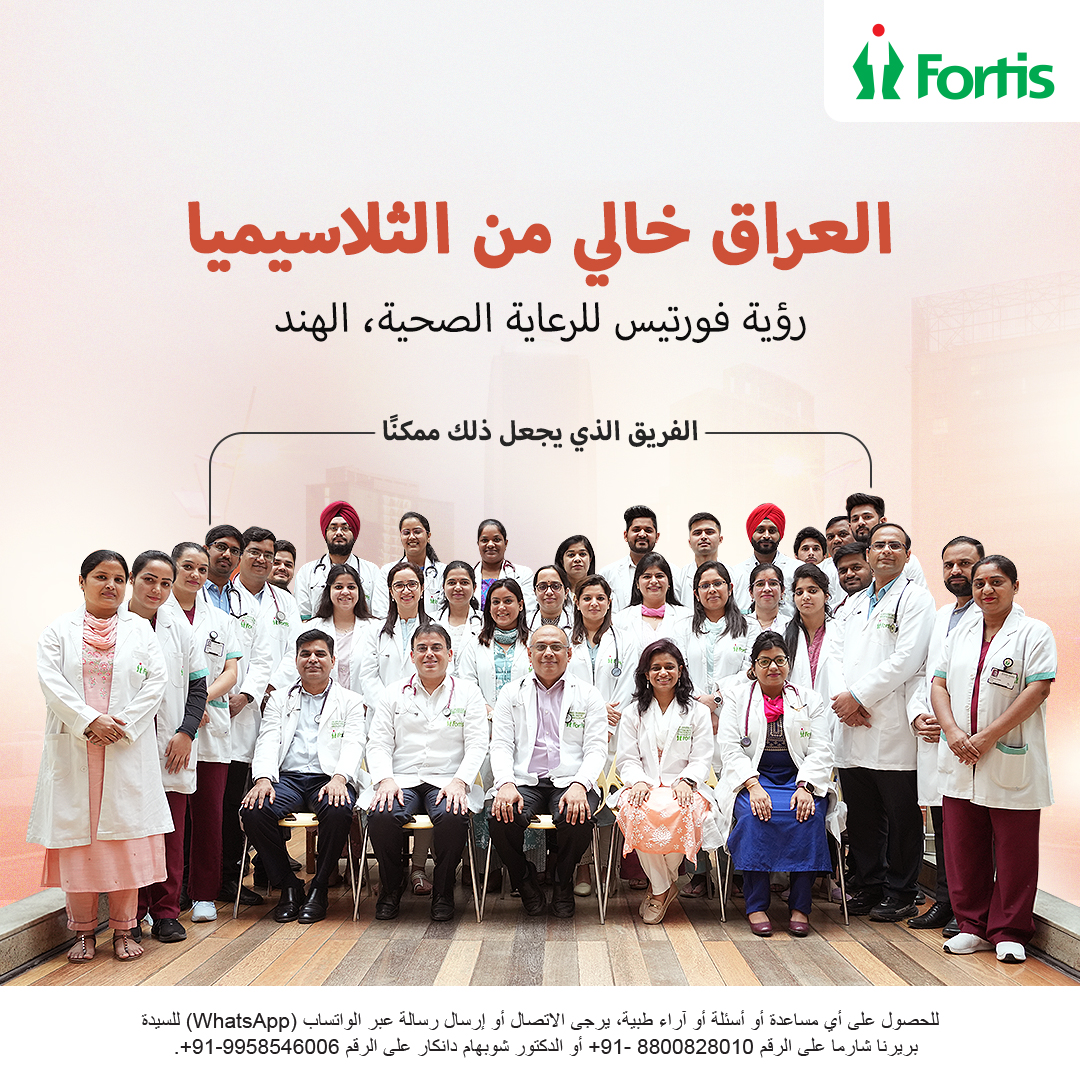نقدم لكم فريق مستشفىفورتيس المذهل في الهندورؤيتهم التحويلية لإدارة مرضالثلاسيميا في العراقوتوفير رعاية ودعم منالدرجة الأولى للمحتاجين. معًا،نحن ملتزمون بتحقيقمستقبل خالٍ من مرضالثلاسيميا في العراق.
لأية مساعدة أو استفسارأو آراء طبية،يرجى التواصل معنا. اتصلأو واتساب: السيدةبريرنا شارما: +91-8800828010 أو الدكتورشوبهام دانكار: +91-9958546006
شكرا جزيلا.

At Fortis Hospital, India, we are dedicated to providing comprehensive care for individuals affected by thalassemia. Our Thalassemia Center offers advanced diagnostic services, personalized treatment plans, and compassionate support to help patients manage this genetic blood disorder effectively. Whether you are living with thalassemia or caring for a loved one with the condition, we are here to support you every step of the way.
Our Services:
- Diagnostic Testing: Our state-of-the-art laboratory facilities enable us to perform a range of diagnostic tests to accurately diagnose thalassemia and assess its severity. These tests may include complete blood count (CBC), hemoglobin electrophoresis, and genetic testing.
- Treatment Planning: Our team of hematologists, genetic counselors, and support staff work collaboratively to develop personalized treatment plans tailored to each patient's unique needs and medical history. Treatment options may include blood transfusions, iron chelation therapy, and bone marrow transplantation.
- Blood Transfusions: We provide safe and effective blood transfusions to individuals with thalassemia to help manage anemia and improve overall health. Our transfusion services adhere to strict protocols to ensure patient safety and comfort.
- Iron Chelation Therapy: Long-term blood transfusions can lead to iron overload in individuals with thalassemia. We offer iron chelation therapy to remove excess iron from the body and prevent complications associated with iron overload.
- Bone Marrow Transplantation: For select patients with severe thalassemia, bone marrow transplantation may offer a potential cure by replacing diseased bone marrow with healthy donor cells. Our experienced transplant team provides comprehensive care before, during, and after the transplant procedure.
- Genetic Counseling: Our genetic counselors offer support and guidance to individuals and families affected by thalassemia. They provide education about the genetic inheritance patterns of thalassemia, discuss family planning options, and offer emotional support throughout the counseling process.
Patient Support and Education:
- We understand that living with thalassemia can pose physical, emotional, and practical challenges. Our Thalassemia Center offers ongoing support services, including counseling, support groups, and access to resources to help patients and their families cope with the condition.
- Through educational materials, workshops, and seminars, we empower patients and their caregivers with the knowledge and tools they need to effectively manage thalassemia and lead fulfilling lives.



